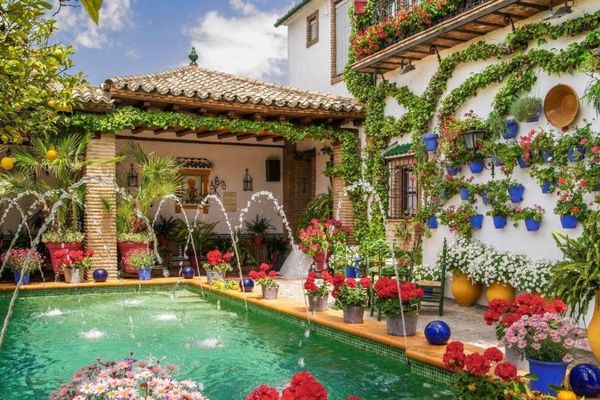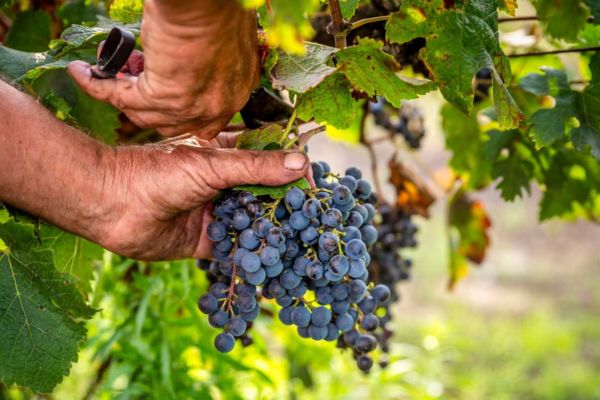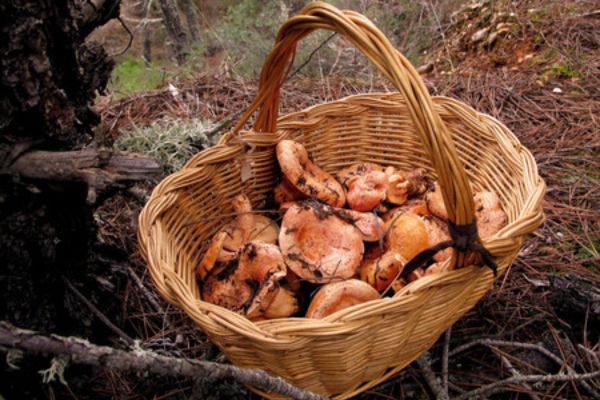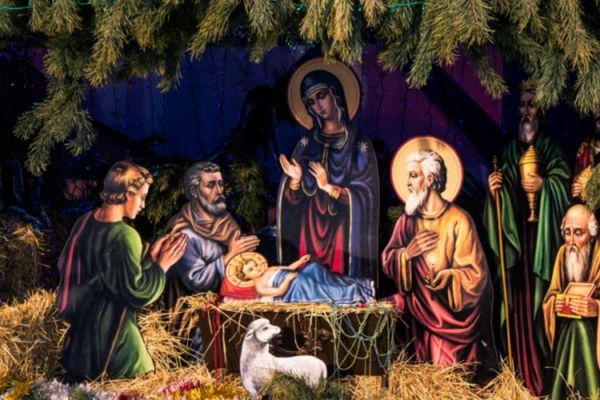To take this tour of the Spanish language and its culture, from a linguistic point of view, I have chosen a representative word for each month of the year. But I have to admit that this is a very personal article, because these words are chosen from my memories, especially those of my childhood, the smells and sounds that I remember, the landscapes… Curiously, none of the words is a meal or is related to food, and many of them are related to the countryside, nature and the natural cycle of the year.
I grew up in a small town in the middle of Spain, surrounded by nature, perhaps that is the explanation for this intuitive choice of characteristic words for each month. I have literally closed my eyes, I have left my mind blank and, suddenly, I thought: ‘I have a word for June! Ah! This is very good for August, for December it couldn’t be any other then …’. And the month that has been most difficult for me has been February, the only adjective on this list of words in which we explore together the Spanish language and its culture.
Do you want to discover them?
The Spanish territory is organised into seventeen autonomous communities, each of them with a strong cultural identity that is reflected in its gastronomy, folklore, traditions and, of course, in the language. In Spain there are four official languages, numerous dialects and a great wealth of accents.
The Spanish language and its culture are closely related, and this is something that teachers take into account in our classes. Let’s start with the first four months of the year and, how could it be otherwise, the word for January is…
January is the youngest month of the year, the days begin to get longer in Spain – the light of the day begins to gain time over the night – and we find ourselves full of plans, dreams and new resolutions for the new year that we have just begun. It’s the beginning.
I honestly feel like when the month of February ends, it always catches me off guard. I always say ‘is February already over?’ And, with its 28 (or 29) days, February flies by real quick. We could use the nickname ‘February The short’ this month.
I have this saying burned into my memory, my grandparents (country women and men) repeated it every year: marzo ventoso y abril lluvioso sacan a mayo florido y hermoso (windy March and rainy April bring out flowery and beautiful May). And March is the month of wind par excellence here, in central Spain.
Continuing with the previous saying, I have been tempted to choose ‘rain’ as the word for April, but at the last minute spring came to me. And if I close my eyes, April is the month in which it begins to get warm in Spain, the fields are green, beautiful, we begin to hear more and more the songs of the birds, the insects, the first flowers… It’s here! The explosion of life!


The relationship between the Spanish language and its culture is evident in music, literature, art, gastronomy… But the natural environment, understood as the climate, ecosystems and geography of the country, also has a great influence on the Spanish Language. So much so that in this article you are seeing a large number of words related to the natural cycles of the year and what happens in each month.
We are going to cross the equator of the year within the next four months.
Let’s finish with our saying… mayo florido y hermoso (May flowery and beautiful). May is the month of flowers. Yes, in plural, because both in the countryside and in the cities, in May Spain is covered in colours. Especially famous and popular is the Los Patios de Córdoba festival, where locals and visitors can enjoy the competition of patios decorated with pots and flowers (many of them with Arab elements).
Fire, that almost magical element, which throughout the centuries we have used in rituals and offerings of a spiritual and religious nature. And so we continue to do so today on the feast of Saint John the Baptist. The night of June 23 to 24 is considered in Spain to be one of the most magical nights of the year and to celebrate it, we make bonfires on the beaches or in the town squares.
This Catholic celebration, like many others, is an adaptation of an ancient pagan festival, celebrated on the summer solstice (June 21) to ask the gods for good harvests at the end of summer.
This word for the month of July is very very personal. In 2021, in a matter of six months, I lost three of my grandparents. They lived long, full lives, and it is the natural cycle of life. But for me it was sad, and I remember that to cheer us up a bit, the family organised a trip to The Brihuega Lavender Festival. It was wonderful. French Provence is the European region world famous for its lavender fields, but here in Spain, we have this beautiful mediaeval town in Guadalajara, called Brihuega, which has been celebrating the lavender festival since 2015.
The holiday month par excellence in Spain is August. And the offer is endless: the village festivals, the Camino de Santiago, the campsites in the mountains of the Pyrenees, Picos de Europa, Gredos, Sierra Nevada… and, of course, the beach. And who says beach, means a very cool beer with a tapa at the beach bar… Mmmmm, just writing this article and imagining it, I’m enjoying it!


To finish our tour of the twelve months of the year, in which we are discovering these words that connect the Spanish language and its culture, we go with the last four months of the year: my favourites.
There is something about these months, when in Spain the days begin to get shorter, the nights are longer, nature – both plants and animals – fall asleep with the cold of autumn and winter… It is a time that invites reflection and spiritual recollection, especially in December, when we end the year and see in perspective everything we have lived and experienced in the last twelve months.
Depending on the area of Spain and the crop we are referring to, the harvest can occur in different months, but, generally, between July and September, the most important crops in the country are harvested, those that have matured in the heat of summer. In many countries, the end of the harvest is celebrated in the month of September.
The grape is the queen of many many Spanish crop fields, why? Because she is the mother of wine. I didn’t know whether to choose grapes, wine, winery… for this month, but, since I was very young, I have harvested grapes with my family. We have a very small vineyard in our town, like many Spanish families. And we make our wine. The grape harvest is a ritual. We start very early in the morning (almost at night) and don’t stop all day cutting bunches of grapes. It doesn’t matter if it rains, if it’s sunny… There are some optimal days of the year to harvest the grapes and everything must be done at that time. In our case, it is a family job, with some friends too, women and men, young and old… It is beautiful (and the physical activity you do is equivalent to a month at the gym, by the way).
I had a list of several words for this month: the (wicker) basket, the mushrooms, the razor… All of them have one thing in common: it is the season for collecting mushrooms in Spain. And here, in my region, well, specifically in my family, the king is the saffron milk-cap. The scientific name of the species in Latin is Lactarius deliciosus and the truth is that it says it all, because it is delicious!!
My favourite time of year, but not because of the gifts or the big meals, but because it is an occasion when family and friends get together. I also like the Christmas lights and markets, but it is the most spiritual, reflective and meditative aspect of this time of year, in which Christians celebrate the birth of Jesus of Nazareth, that I enjoy the most. The origin of the word Navidad comes from the Latin nativĭtas, which means ‘birth’.


How I enjoyed writing this article! It has flowed, the text and the ideas have come to me on their own… I invite you to do this small ‘reflection exercise’: choose a word for each month of the year. Something personal, something that comes intuitively to you, without thinking too much. Maybe it happens to you like me and you travel back to your childhood. Maybe your memories are from another time in your life… I don’t know, but try to do it in Spanish. At least, you will practise twelve words that are meaningful to you!
If you want to learn Spanish in a well-structured way, with the guidance of an accredited native teacher, and practising key skills such as conversation, you can take a look at our catalogue of Spanish classes or our Membership Programme. Book your trial class with us today and meet your teacher.
One more word to finish the article: gracias! 😉
